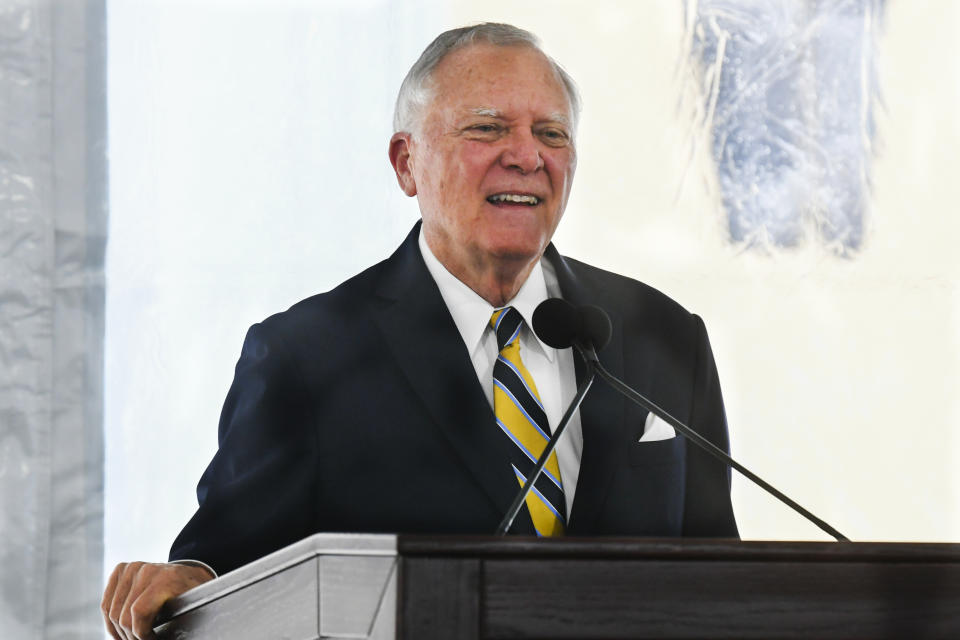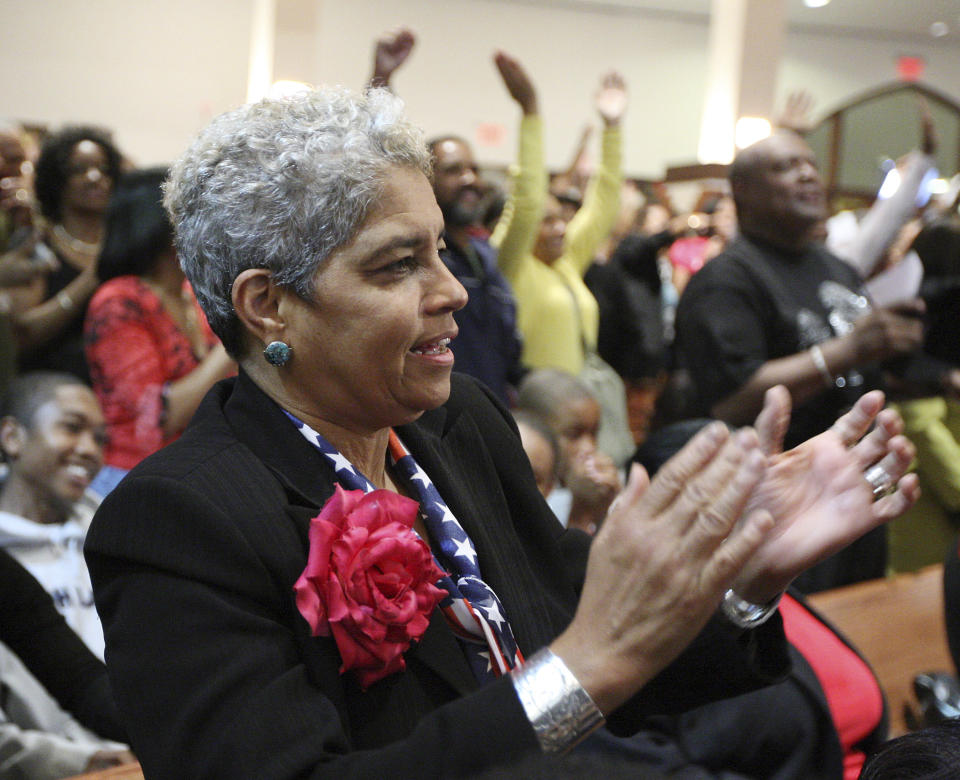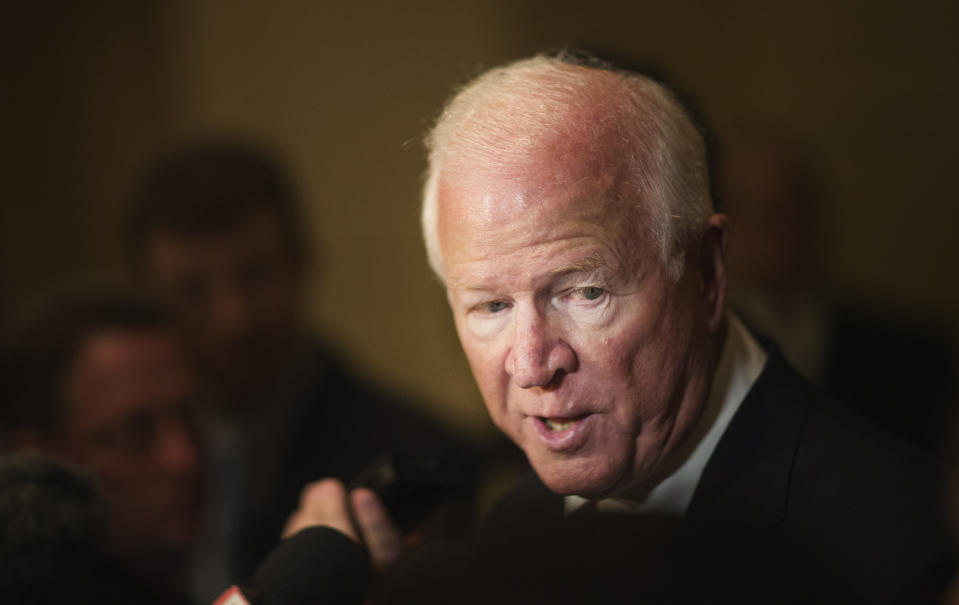Former Georgia officials say they're teaming up to defend the legitimacy of elections
ATLANTA (AP) — Four prominent former officials in Georgia, which has been a major front in disinformation over the democratic process, are joining a group that says it will try to counteract efforts to make people distrust elections.
Those joining the Democracy Defense Project, whose launch was announced Tuesday, include two Georgia Republicans, former Gov. Nathan Deal and former U.S. Sen. Saxby Chambliss, and two Democrats, former Gov. Roy Barnes and former Atlanta Mayor Shirley Franklin.
“For far too long, politicians, pundits and activists have worked overtime to sow distrust in American's electoral process,” Deal said in a statement. “We refuse to sit on the sidelines while the bedrock of this great nation is eroded away by misinformation and dangerous political agendas. Our goal is to restore confidence in the electoral process that makes this country exceptional.”
The four are Georgia board members in a national effort that says it will seek news coverage, as well as raise money to buy advertisements to push back against efforts to undermine elections and try to persuade people to move beyond “polarizing rhetoric.”
The group says it is focusing on states where Democrats and Republicans are competitive in elections. Other board members include three former governors, Republicans Jan Brewer, of Arizona, and Brian Sandoval, of Nevada, as well as Democrat Ed Rendell, of Pennsylvania.
Their announcement comes two days before Democratic President Joe Biden and Republican former President Donald Trump meet for their first debate of the 2024 campaign in Atlanta.
Trump's fellow Republicans, Georgia Gov. Brian Kemp and Secretary of State Brad Raffensperger drew his ire after the 2020 election for refusing to help him overturn legitimate results that were confirmed by multiple recounts.
The anger that Trump stoked among his supporters has driven continued upheaval in Georgia's politics and election policy. A Republican-majority legislature has made repeated changes in the state's election laws, but local and state election officials still face angry critics demanding that they acknowledge that the 2020 election was stolen and the state's election system is deeply flawed.
The tumult extends far beyond Georgia. Trump, the presumptive GOP nominee, continues to sow doubts about the last presidential election and is warning his followers — without citing any evidence — that Democrats will try to cheat in the upcoming one.
Just 22% of Republicans expressed high confidence that votes will be counted accurately in November, according to an Associated Press-NORC Center for Public Affairs Research poll last year.
A recent survey by the Brennan Center for Justice at New York University’s Law School found that nearly 40% of local election officials had experienced threats or harassment. The abuse has caused many to leave their jobs.
“While it may be politically advantageous to undermine America's core values, it's a harmful, damaging game with lasting consequences for ‘We the People,’” Barnes said in a statement. He was Georgia's most recent Democratic governor, serving from 1999 to 2003.
Chambliss, who was a U.S. senator from 2003 to 2015 and U.S. House member from 1995 to 2003, has been a longtime advocate for Raffensperger and Georgia's election system. He was one of the few Republicans to come forward in the weeks after the 2020 election to defend Raffensperger against Trump's attacks, saying at the time “there is just no widespread fraud.”
The four join others who have banded together to speak up in defense of how American elections are run. That includes a group of Republican election officials coordinated by the SNF Agora Institute at Johns Hopkins University and the center-right think tank R Street Institute. That group aims to rally Republicans to affirm the security of elections across the United States and to avoid raising doubts about election results in other locales.





